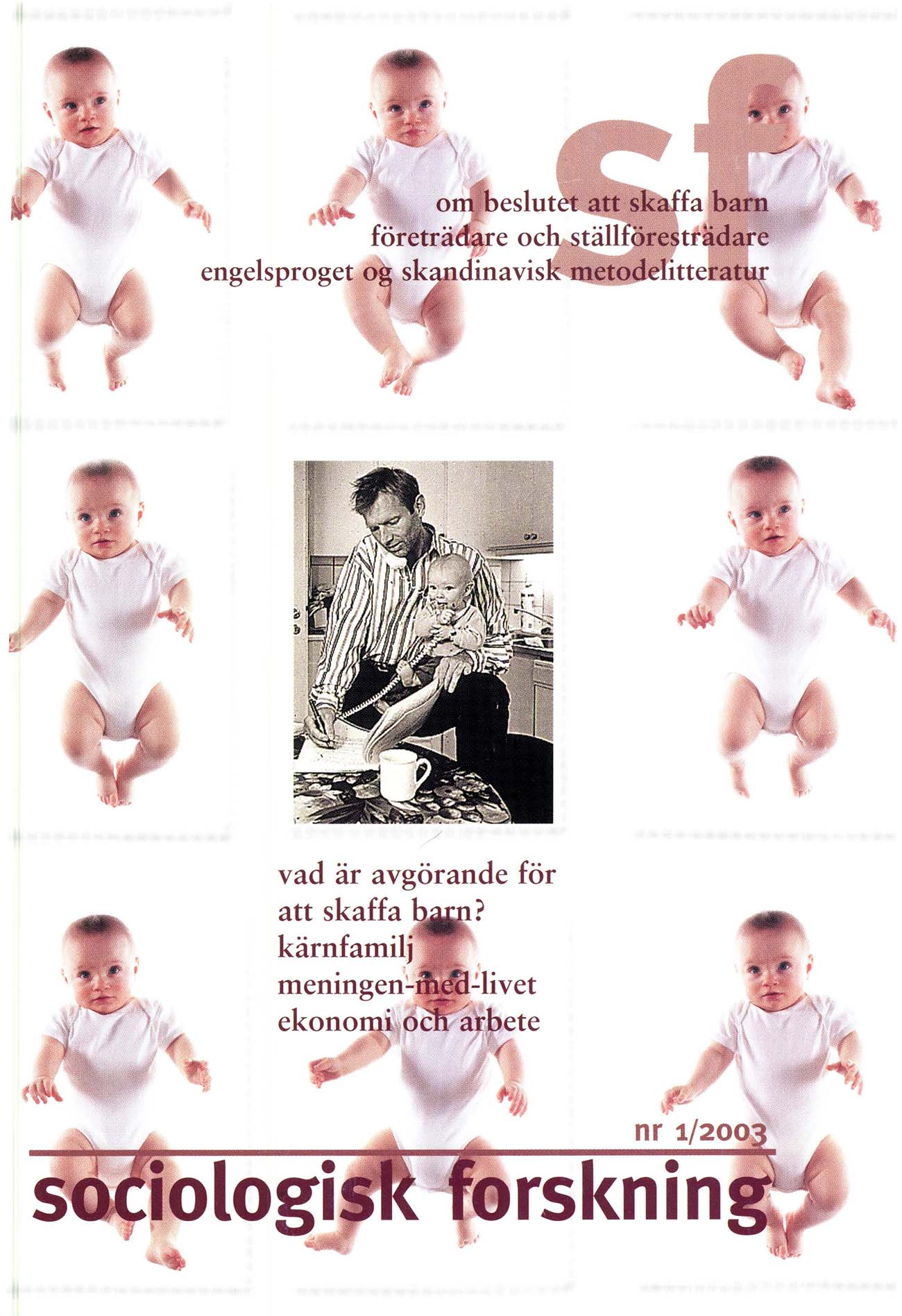Önska, välja och vilja. Om beslutet att skaffa barn
DOI:
https://doi.org/10.37062/sf.40.19393Nyckelord:
family, gender relations, birth rates, individualization, detraditionalization, economic structures and economic cyclesAbstract
Wishing, choosing and wanting. On the decision to have a child
Falling birth rates within the European Union have given rise to a number of studies trying to analyse and interpret why women (and men) choose not to have (many) children. One attempt in this direction is made by an ongoing EU-project, involving eight countries, including Sweden. Qualitative interviews focusing on couples’ decisions to have - or not have - children have been carried out in each country. Drawing on the Swedish data, this article argues that the ongoing and gendered processes of individualization and de-traditionalization, as well as economic structures and economic cycles, affect such decisions. That is, couples’ decisions about having children are closely connected to questions both concerning the possibilities to live “a life of your own” within the nuclear family, and to household finances and job security. Furthermore, the choice to have a baby is considered a risk project, which might involve not only poor finances and problems at work, but also increasing tensions between partners concerning the division of housework. Due to persisting gender inequalities outside as well as inside the couple relationship, women particularly seem to fear that a(nother) child would negatively affect their possibilities of “living a life on their own” .
Downloads
Publicerad
Referera så här
Nummer
Sektion
Licens
Allt material i Sociologisk Forskning publiceras med omedelbar öppen tillgång (open access), under Creative Commons-licensen CC BY-NC-ND 4.0.
Allt innehåll i tidskriften är fritt tillgängligt utan kostnad och får för icke-kommersiella syften fritt läsas, laddas ned, kopieras, delas, skrivas ut och länkas. Innehållet får dock inte ändras. När innehållet används måste författare och källa anges. Upphovsrätten till innehållet tillhör respektive författare. Inga publiceringsavgifter tas ut.





